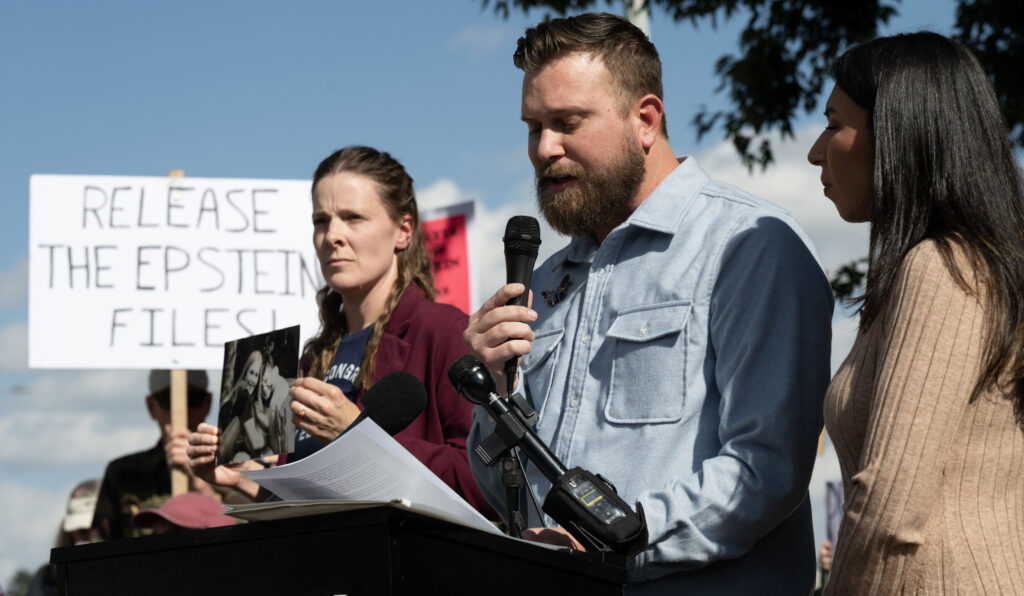Montana man gets 6 months in prison for cloning giant sheep, breeding it | OUT WEST ROUNDUP
MONTANA
Man sentenced for cloning giant sheep
GREAT FALLS — An 81-year-old Montana man was sentenced on Sept. 30 to six months in federal prison for illegally using tissue and testicles from large sheep hunted in Central Asia and the U.S. to create hybrid sheep for captive trophy hunting in Texas and Minnesota.
U.S. District Court Judge Brian Morris said he struggled to come up with a sentence for Arthur “Jack” Schubarth of Vaughn, Montana. He said he weighed Schubarth’s age and lack of a criminal record with a sentence that would deter anyone else from trying to “change the genetic makeup of the creatures” on the earth.
Morris also fined Schubarth $20,000 and ordered him to make a $4,000 payment to the U.S. Fish and Wildlife Foundation.
Schubarth’s attorney, Jason Holden, said cloning the giant Marco Polo sheep hunted in Kyrgyzstan in 2013 has ruined his client’s “life, reputation and family.”
Holden, in seeking a probationary sentence, argued that Schubarth was a hard-working man who has always cared for animals and did something that no one else could have done in cloning the giant sheep, which he named Montana Mountain King.
The animal has been confiscated by U.S. Fish and Wildlife Services and is being held in an accredited facility until it can be transferred to a zoo, said Richard Bare, a special agent with the wildlife service.
Colorado's mountain lion hunting ban ballot measure faces county opposition
Schubarth owns Sun River Enterprises LLC, a 215-acre ranch, which buys, sells and breeds “alternative livestock” such as mountain sheep, mountain goats and ungulates, primarily for private hunting preserves, where people shoot captive trophy game animals for a fee, prosecutors said.
Schubarth pleaded guilty in March to charges that he and five other people conspired to use tissue from a Marco Polo sheep illegally brought into the U.S. to clone that animal and then use the clone and its descendants to create a larger, hybrid species of sheep that would be more valuable for captive hunting operations.
UTAH
Mormon church leaders encourage civility
SALT LAKE CITY — As both presidential campaigns have stepped up efforts to win over voters in western swing states who belong to The Church of Jesus Christ of Latter-day Saints, a top church official urged members on Oct. 5 to “avoid what is harsh and hateful” in the heat of election season.
Dallin H. Oaks, the top adviser and likely successor to 100-year-old church president Russell M. Nelson, encouraged 18,000 congregants at the twice-annual general conference of the faith known widely as the Mormon church to steer clear of contention and be peacemakers in their communities.
The faith’s leaders strive to remain politically neutral, but they sometimes give general advice about how members should approach key elections. About 7 million of the faith’s 17 million worldwide members live in the United States, many in the battleground states of Arizona and Nevada, and in solidly red Utah and Idaho.
Latter-day Saints have been a reliably Republican voting bloc for decades, but many have half-heartedly embraced Donald Trump since his first run for the White House.
Q&A with Jared Polis, Spencer Cox and Amy Persons | Can 'disagreeing better' rescue America's political discourse?
Some church members say the former president’s demeaning rhetoric toward women, immigrants and refugees conflicts with their core values of humility, honesty and compassion. Others have raised concern about his felony convictions and his attempts to undermine the 2020 presidential election.
Vice President Kamala Harris is hoping to capitalize on her opponent’s inability to lock down the Latter-day Saints vote. Her campaign formalized outreach efforts this summer and enlisted prominent members of the faith to convince those in battleground Arizona, a state with nearly 450,000 church members, that Trump is not in alignment with the church’s teachings.
Harris is unlikely to come close to winning a majority of Latter-day Saints. But by preventing Trump from running up big margins with a key demographic, she could tip the scales in Arizona and Nevada, which is home to upward of 180,000 Latter-day Saints.
NEW MEXICO
Former inmates with felonies eligible to vote
SANTA FE — More that 730 people so far have registered to vote under the new voting provisions concerning felony convictions, according to the New Mexico secretary of state’s office.
District Judge Kathleen McGarry Ellenwood has ordered that steps be taken to ensure former inmates eligible to vote under a law last year can do so.
The law that took effect in July 2023 restored voting rights to about 11,000 people in New Mexico who previously served prison time for felony convictions.
It allows people to vote after they are released from custody, including those who are on probation or who have been granted parole.
Who can vote in Colorado? 10 things you should know about voter eligibility in the Centennial State
But a lawsuit recently filed in Santa Fe by a group that advocates for people who are incarcerated or used to be claims that some applicants seeking to have their voting rights restored have received rejection letters from county clerks relying on inaccurate or outdated information from authorities, the Albuquerque Journal reported.
Ellenwood’s order requires Secretary of State Maggie Toulouse Oliver to provide updated voter registration forms.
Oliver also must work with the state’s 33 county clerks to determine whether people who attempted to register to vote since July 2023 but were rejected should be added to the state’s voter rolls, the Santa Fe New Mexican said.
Man gets probation for threatening DA
LAS CRUCES — An Ohio man avoided prison time and was sentenced to three years of probation on Oct. 9 for sending a threatening voicemail with racist overtones to a New Mexico district attorney last year, authorities said.
Prosecutors said 47-year-old Donald Walter Fowler, of Lido, Ohio, didn’t like the way authorities and Gerald Byers were handling the investigation of a fatal shooting involving a Las Cruces police officer last October.
They said Fowler targeted Byers, who is Black.
Fowler was accused of leaving an expletive-filled voicemail on Oct. 26 for Byers, which included “there should be a noose in your future.”
Colorado judge who sentenced election denier Tina Peters to prison receives threats
Authorities said records traced the call to Fowler, who was arrested in November, indicted the following month and reached a plea agreement in June.
Fowler was facing up to three years in prison at his sentencing for a felony charge of communicating interstate threats.
Byers said Fowler’s threat disrupted police agency operations, required enhanced security measures at the district attorney’s office and necessitated additional security measures for his home and family.











